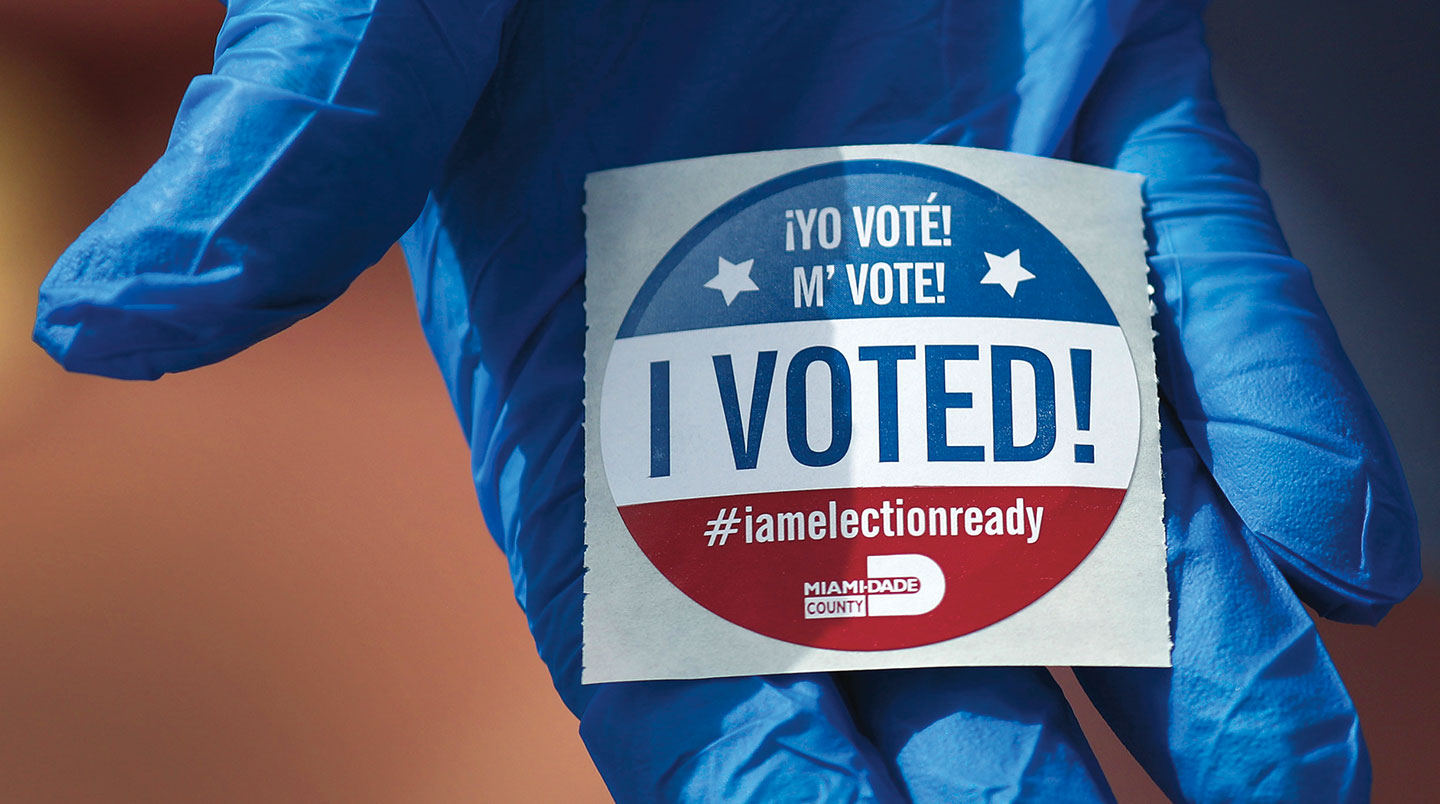Americans hold a presidential election every four years, but this year’s contest has turned out to be anything but business as usual.
In previous elections, most states had already held their primaries or caucuses by this point. (These state-by-state elections help determine the Democratic and Republican presidential nominees.) Meanwhile, the presidential candidates were busy crisscrossing the nation, holding rallies and meeting as many voters as possible.
But this spring, amid fears over the deadly coronavirus pandemic, more than a dozen states have postponed their primaries—many pushing the contests back until June. In addition, traditional campaigning has all but stopped.
Although the primaries are not over, U.S. President Donald Trump is almost certain to be the Republican nominee. He is running for reelection. Former U.S. Vice President Joe Biden is expected to be the Democratic nominee. The other Democratic candidates dropped out.
Normally, the parties formally present their nominees at their national conventions, which are both now slated for August. But experts say precautions against the coronavirus could force the groups to hold virtual gatherings instead.
How else could the coronavirus pandemic affect the upcoming election? Here’s what you need to know.
Americans hold a presidential election every four years. But this year’s contest has turned out to be anything but business as usual.
In previous elections, most states had already held their primaries or caucuses by this point. (These state-by-state elections help determine the Democratic and Republican presidential nominees.) Meanwhile, the presidential candidates were busy crisscrossing the nation. They were holding rallies and meeting as many voters as possible.
But this spring, more than a dozen states have postponed their primaries. They have done so because of fears over the deadly coronavirus pandemic. Many states have pushed the contests back until June. In addition, traditional campaigning has all but stopped.
Although the primaries are not over, U.S. President Donald Trump is almost certain to be the Republican nominee. He is running for reelection. Former U.S. Vice President Joe Biden is expected to be the Democratic nominee. The other Democratic candidates dropped out.
Normally, the parties formally present their nominees at their national conventions. Both conventions are now slated for August. But experts say precautions against the coronavirus could force the groups to hold virtual gatherings instead.
How else could the coronavirus pandemic affect the upcoming election? Here is what you need to know.

